
What impressed me most at that time is global solidarity. Those months were heartbreakingly hard. But they were also a time of triumph. Rarely has the world shown such solidarity. Scientists from multiple countries put aside their academic rivalries and collaborated around the clock sharing all they knew, all their special tricks of the trade. Top scientific journals set aside their rules about content access and expedited publication dates to ensure that new knowledge about the disease was immediately available to all. Clinicians spent long hours in teleconferences, sharing knowledge about symptoms and treatment, trying to unravel the mysteries of the new disease.
New and emerging infections keep coming back and the world needs a collective defense system, and that requires international cooperation and collaboration.
I appreciate member states' trust to elect me as WHO's Director General. I have a special interest in new and emerging infections because, perhaps, of my previous experience. I keep a very high level of vigilance.
PD Online: When you look back now, is there anything that the Chinese mainland and Hong Kong could have done better in response to SARS? What lessons shall we learn?
Chan: SARS revolutionized our understanding of the power of real-time communications. During the outbreak, the WHO issued daily situation updates, keeping the public and the media fully informed, as knowledge about the disease and effective measures for control began to emerge.
SARS taught the importance of meeting an emergency with whatever tools are at hand. SARS was a 21st-century disease in its mode and speed of spread. But it was eventually defeated using the 19th-century tools of case detection, contact tracing, isolation and infection control.
SARS was a story about human ingenuity and determination, about a world united by a shared threat, about how a lethal new virus could bring about the best in human nature.
The SARS experience has shown that immediate political commitment at the highest level can be decisive. Countries can triumph over a disease when reporting is prompt and open, when WHO assistance is quickly requested and fully supported, and when rapid case detection, immediate isolation and infection control, and vigorous contact tracing are put in place.
PD Online: As the Director of Health in Hong Kong, you made great efforts in response to SARS, while there were still doubts and criticisms about you. Did you feel wronged? How did you manage this pressure? Actually you were retired and were on contract service with the Department of Health of Hong Kong. Was the thought of giving up ever in your mind? How did you manage to keep on going?
Chan: You're right, it's no easy job at that time being a senior public health official during an outbreak. There are critical decisions that have to be made - decisions that will affect human health, the economy and have political repercussions - and you have to make those decisions with incomplete information.
 |  |

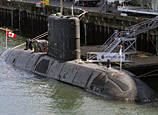
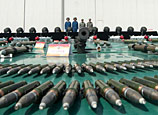
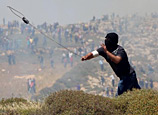

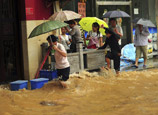




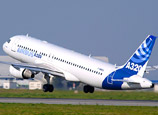






 Heavy rain affects traffic in S China
Heavy rain affects traffic in S China


![]()
